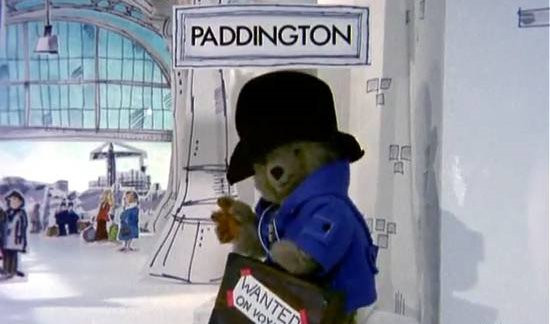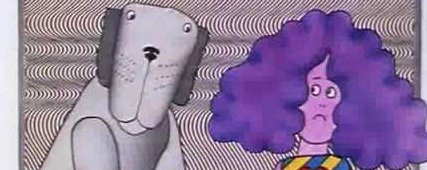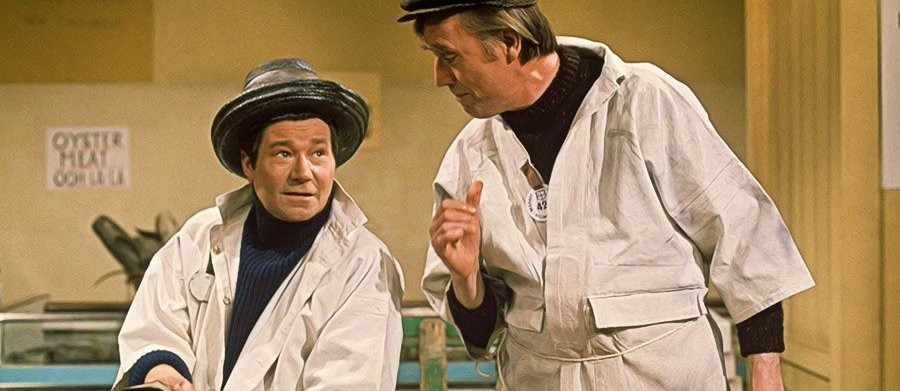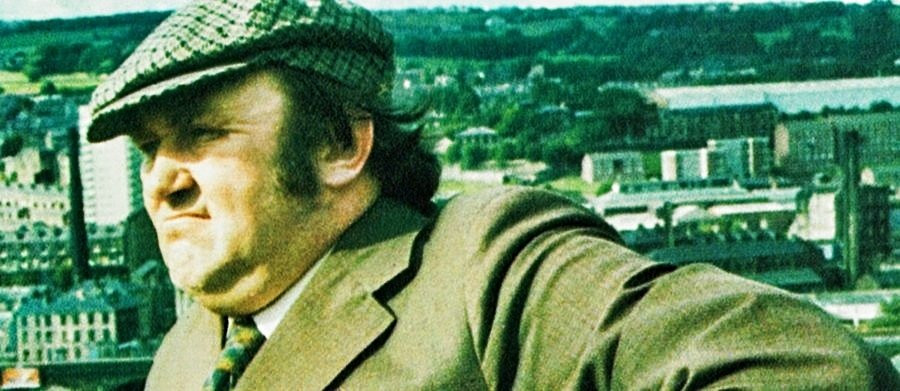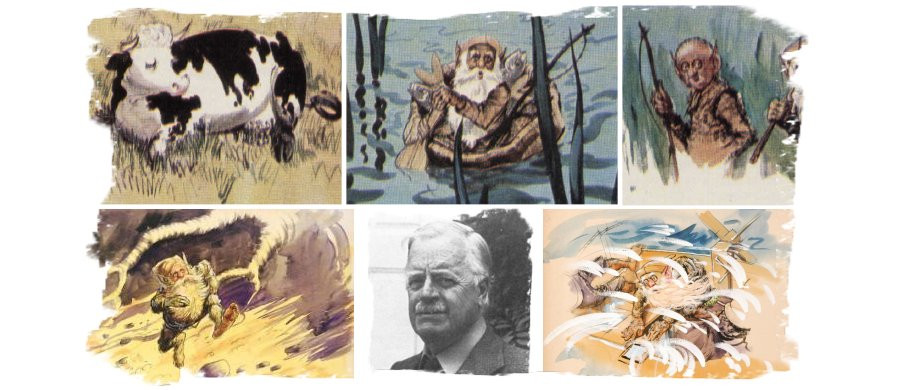
Baldmoney, Sneezewort, Dodder and Cloudberry
1975 - United KingdomMeet the last four gnomes in England, or rather three of them. For when Baldmoney, Sneezewort and Dodder wake up under the old oak tree after a long winter sleep, they discover cloudberry is missing.
The question is, should they set out on an expedition to find him? It could be very dangerous.
In 1975, Anglia Television produced a ten-part story-board series based on the children's fantasy novel The Little Grey Men. Written by Denys James Watkins-Pitchford under the nom de plume 'BB' and illustrated by the author under his real name, the tale, set in the English countryside through three seasons, was first published in 1942.
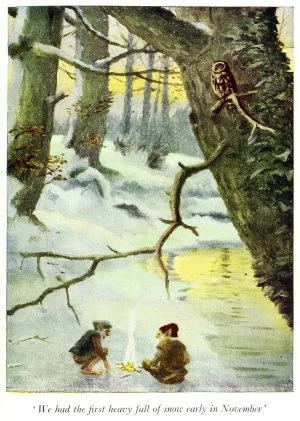
Watkins-Pitchford, who was an assistant art master at Rugby School, spent his spare time jotting down his children's story about four endearing gnomes who lived in a cosy burrow beneath the roots of an old oak tree, content to live their lives in happy tranquillity, until one of them - Cloudberry, gives in to his obsession to explore the wider world. Two years later, the other three gnomes build a boat and set off to find him. But their journey is fraught with danger, adventure, magic and murder most foul.
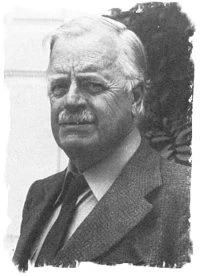
In 1975, Watkins-Pitchford told TV Times magazine "I wasn't interested in fairy stories (as a young boy). But I used to pass a typical rushing country stream near my home, full of little whirlpools and the roots of old gnarled oaks. I imagined people living down there. Not hairy grotesque gnomes, but a band of little folk, like animals, carrying on their own way of life out of human view. When I wrote the book I actually put myself into the world of the gnome. I imagined I was in the gnome's situation, living in the stream." With his love of nature, he named Baldmoney, Sneezewort, Dodder and Cloudberry after wild perennial plants.
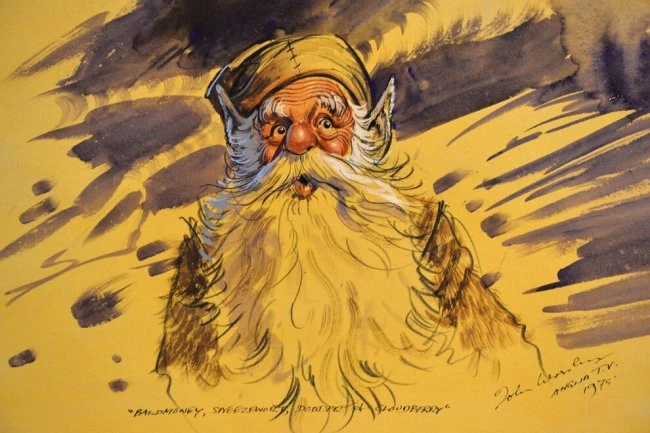
The original story (a second book, Down the Bright Stream was published in 1948) was adapted for television by actor/producer Paul Honeyman (as Baldmoney, Sneezewort, Dodder and Cloudberry), who also narrated the tale. It was illustrated by John Worsley, a prolific British artist and illustrator who had previously worked on the children's comic Eagle, as well as its companion publication, Girl. But he achieved his most enduring success with The Adventures of PC 49, a comic strip about a British Bobby.
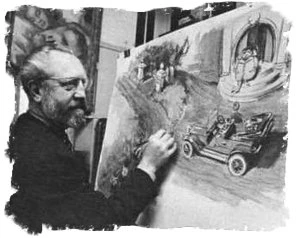
Working in his London studio, Worsley produced 350 paintings to illustrate the series (three of which are on this page). Beyond his fictional work Worsley most famously created Albert RN, the dummy sailor at the centre of a daring escape from a POW camp during the Second World War.
Worsley, who was a prisoner himself, created a life-sized figure out of wire and papier-mâché, which was held between two soldiers during the camp roll call, fooling the guards into thinking they had a full complement of prisoners, while a British soldier made his escape.
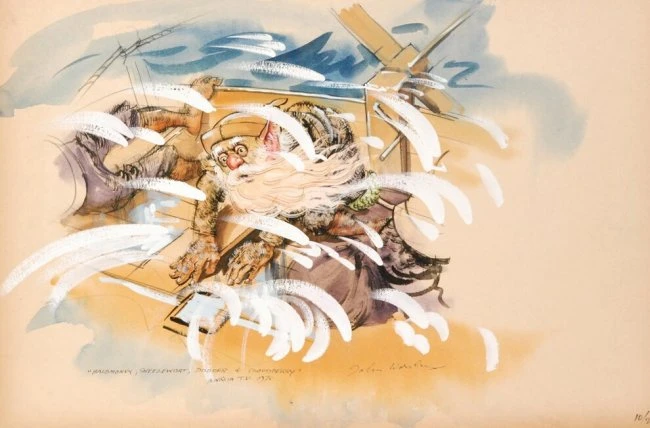
Another of Watkins-Pitchford's novels, Brendon Chase, was made into a television series in 1980. But the last word must go to the man himself. When questioned on whether or not he had adorned his garden with plastic gnomes, he replied: "I absolutely abhor the things. I wouldn't have one within 100 yards of here."
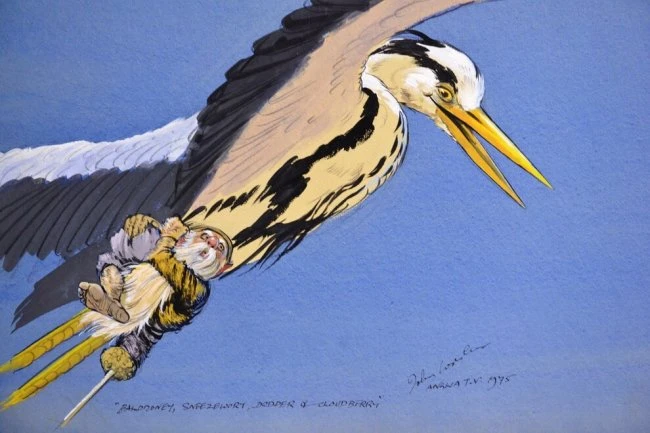
Seen this show? How do you rate it?
Seen this show? How do you rate it?
Published on October 3rd, 2019. Written by Laurence Marcus for Television Heaven.


